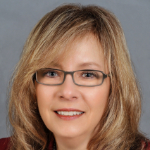 The industry event anyone in secured finance attends now celebrates its 77th year. SFNet is set to make the Arizona convention a memorable one. Click below to register.
The industry event anyone in secured finance attends now celebrates its 77th year. SFNet is set to make the Arizona convention a memorable one. Click below to register.

Margaret Griffin
Senior Vice President, SBA Regional Sales Manager, The Huntington National Bank (HNB)
Biography:
Margaret is currently a senior vice president, SBA regional sales manager in Chicago for The Huntington National Bank (HNB), a Columbus, Ohio-based regional bank that has been in existence for over 150 years. Recruited in 2017 as part of HNB expansion into the Chicago/Wisconsin Market, she is responsible with growing market share for the SBA Division by building and maintaining relationships within the business community. Small business owners can access financing with SBA government lending programs such as the SBA 7(a), SBA 504 and SBA Express programs. These programs are designed to enhance cash flow needs of a business owner. During her tenure at Ridgestone Bank, Margaret was tasked with generation of SBA 7(a) loans. Margaret has her bachelor of science degree in accounting and MBA degree in finance. She is a mentor for Step Up, a speaker for the Chicago District Office of SBA/SCORE and is a Board Member of SomerCor 504 CDC. She is extremely active in many associations in the Midwest such as the SFNET, TMA, IWIRC, ABI, and ABA. Margaret resides in the south side of Chicago.
What advice would you offer to women just starting out in the industry?
Over my career I found that networking is critical within your organization or outside of it. It does not matter if you are in sales, operations or IT we all have a need for a group in our industry of supporters to discuss ideas, get advice or just vent. If you can find a more senior woman in the organization who will support you or mentor you, it will provide significant help. Remember that, if someone is kind enough to be a mentor be respectful of their time, really listen, and take notes when they meet with you.
Studies have shown women are more reluctant to tout their accomplishments in the workplace. What advice would you give to help women be more comfortable with speaking up?
If a young professional woman is not comfortable with this, perhaps they can think of it as helping others (paving the path or road map) by sharing a success story. All of us in the finance industry struggle to succeed and hearing about another woman’s success is inspiring.
What do you know now that you wish you knew in the beginning of your career?
To focus more on listening to the needs of my clients, direct reports and to stay in better contact with my networks and former business associates. I was so lucky to have so many people that helped train me and advance my career; but, as you move on within your career, you lose touch with prior associates. It is so important to maintain these connections.
How have you approached big career decisions?
It’s important to look at the big picture when making career decisions, as short- term decisions can affect long-term career objectives. Be strategic in accepting positions that align with your personal and professional intentions because success comes when you truly care about what you do.
What do you enjoy most about your role? Least?
The excitement of still learning new things whether we are lending to a new type of industry or there is a new legal twist in a deal. No two companies or situations are the same. The part I like least is the times that I have to say no.
How do you balance work/personal time?
Do not wait until a tragedy happens in your life to reevaluate your balance. I really focus on being present in the moment when I am with someone. Whether it is with your kids, spouse or friends, it is not necessarily the amount of the time, but the quality of time when you are together. Put away the iPhone, iPad, computers, and focus on being with the people who support you the most. I find most people would rather have 15 minutes of your undivided attention than an hour with you watching you “multi-task”.
How can commercial finance organizations offer meaningful professional development and career advancement?
For me it is the huge referral network of people. In my business nothing is ever vanilla or simple so it is helpful to discuss problems/situations with my peers who have faced similar issues/events. Getting outside experts and/or professionals involved who understand the situation can really help you get the best result. I also believe that with the elimination of corporate training in many organizations, the classes and professional presentations offered our industry organizations are invaluable to the members.
77th Annual Convention
 The industry event anyone in secured finance attends now celebrates its 77th year. SFNet is set to make the Arizona convention a memorable one. Click below to register.
The industry event anyone in secured finance attends now celebrates its 77th year. SFNet is set to make the Arizona convention a memorable one. Click below to register.
